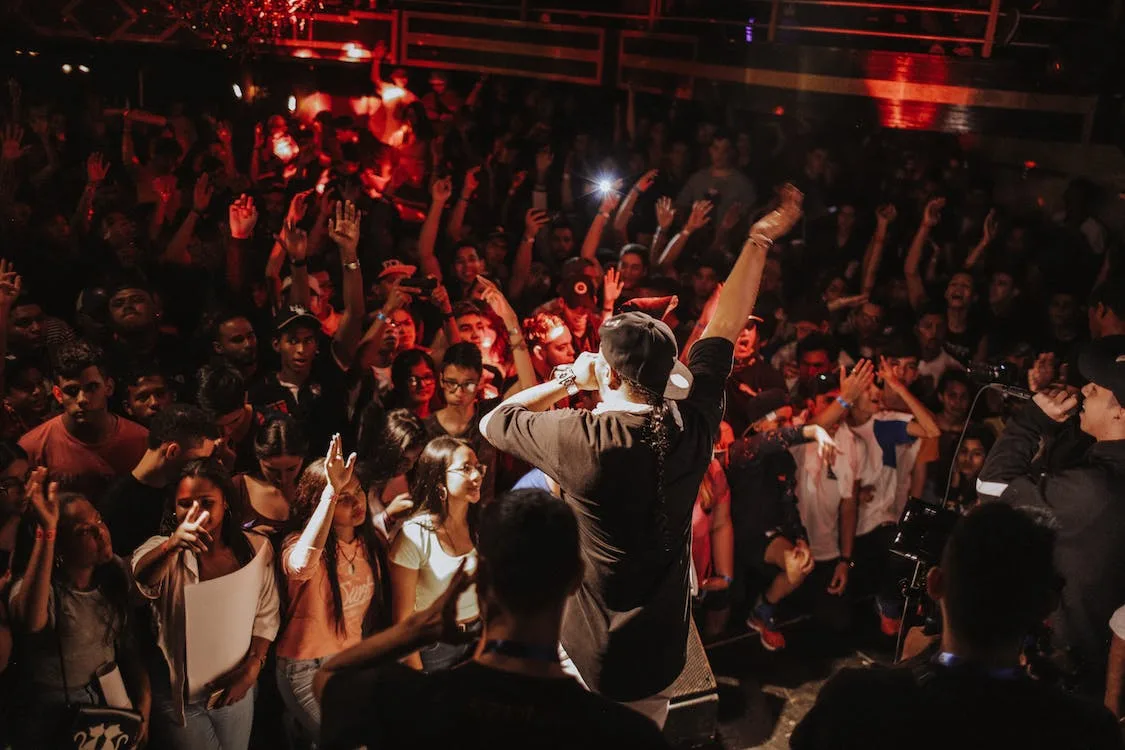The Legal Battle of Illegal: How a Rap Duo Faced Censorship and Criminal Charges
Image source: Pexels.com
Rap fans may be familiar with Illegal, a Pakistani rap duo that gained notoriety in 2022 for their contentious lyrics and music videos. Ali and Zee’s group Illegal is well-known for their powerful songs that address societal themes like violence, poverty, corruption, and police brutality. Many young people in Pakistan have found solace in their music, viewing them as a representative of their generation.
Still, not everyone finds Illegal to be enjoyable. They are alleged to have glorified crime, incited enmity, and encouraged violence by the Pakistani authorities. They have had their songs taken off radio and television, and they have been arrested multiple times on different offences. One of the most horrific instances had them being accused of blasphemy, a felony for which there is a death sentence in Pakistan, for allegedly defaming Islam and the Prophet Muhammad in a song.
How did it begin?
When Illegal published their debut album, “The Truth,” in 2019, that’s when their legal problems started. With over a million copies sold and multiple nominations and awards, the record was a major hit. Authorities were also drawn to it, meanwhile, claiming that some of the songs included inappropriate or aggressive content.
The System: A Nationally Shaking Song
“The System,” which denounced the Pakistani military and administration for their corruption and abuses of human rights, was one of the songs that caused a stir. The song also made reference to the protracted insurgency known as the Balochistan conflict, which takes place in the southwestern part of Pakistan and involves ethnic Baloch insurgents battling for independence and autonomy.
Authorities charged Illegal with inciting violence against the state and aiding and abetting Baloch rebels. On suspicion of sedition and terrorism, they invaded their studio, took their equipment, and placed them under arrest. They also outlawed any kind of performance or distribution of the song.
The illegals refuted the accusations, claiming that they were merely using their right to free speech and expressing their thoughts. They clarified that the purpose of their song was to bring attention to the injustices and plight of the Baloch people rather than to support any political party or ideology.
How did they respond?
Illegal persisted in spreading their message and making music. They retained legal counsel to defend them and filed an appeal in court. In addition, they kept on producing music and releasing it online, connecting with their fans through social media and streaming services. Additionally, other artists, activists, and organizations provided them with support. who denounced the harassment and repression they experienced.
Amnesty International: A Worldwide Friend of Undocumented
Amnesty International, a global human rights organization, was one of the most prominent supporters. They started a campaign to liberate illegal immigrants and defend their freedom to artistic expression. According to Amnesty International, illegal music is a form of social commentary and nonviolent protest, and as such, they shouldn’t be penalized. In addition, they claimed that the blasphemy accusation endangered their lives and violated their right to freedom of religion and belief.
The Pakistani government was urged by Amnesty International to respect the human rights of the illegal and to withdraw the allegations against them. They also urged people to show support for illegal immigrants by signing a petition and sending letters. In order to raise money and exposure for their legal defense, they also planned events and concerts.
What was the result?
in 2023, after a protracted and challenging judicial struggle, Illegal ultimately prevailed. They were cleared of any wrongdoing and the charges against them were dropped by the court. Additionally, the court permitted them to resume their career by lifting the prohibition on their songs.
Illegal: A Win for Creative Expression and Rap Music
Illegal praised their followers and fans for sticking by them as they celebrated their win. They expressed their relief and happiness, but they also acknowledged that their struggle was far from done. They vowed to keep writing songs and speaking out against oppression and injustice. Additionally, they expressed their hope that other artists and activists will be motivated to question the system and fight for their rights as a result of their case. For Pakistani rap music and artistic expression, Illegal’s case was historic. It demonstrated that artists have the freedom to freely and creatively express themselves, and that rap music can be a potent tool for social change. It also demonstrated that, with bravery and unity, rap music censorship and criminality can be contested and overturned.





0